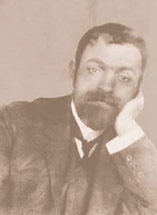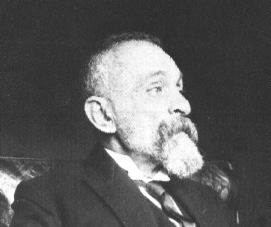Written over a period of 20 years and completed in 1937, it is clearly Shestov's crowning achievement - a critical overview of the history of Western philosophy from the standpoint of Shestov's vision of the destructive bondage that rationalist thought imposes on human spirit. This book (1929) constitutes a collection of Shestov's essays on Tolstoy, Dostoevsky, Blaise Pascal, Descartes, Plotinus and Spinoza written in the 1920's. Shestov's sharp gift for philosophical criticism finds here its best examples. Published in 1923, this work is partly written in aphoristic form and represents Shestov's first attempt at a "critique of organized metaphysics" which he pursued relentlessly ever since. It also contains an essay on Edmund Husserl. The English translation was made from the French edition rather than the original Russian. This book is a posthumous collection of Shestov's essays written at different times and published in йmigrй journals. Shestov's daughters made the selection and issued the book in 1964 in Paris. Some essays deal with Shestov's celebrated contemporaries such as Martin Buber, Edmund Husserl, Nikolai Berdyaev, Lucien Lйvi-Bruhl. Others are devoted to Kierkegaard, Dostoevsky, Tolstoy and others. The book's longest essay, "Speculation and Apocalypse", treats of Vladimir Solovyov's philosophy. > The Good in the Teaching of Tolstoy and Nietzsche Published in 1900, this is the book that established Shestov as one of the more original thinkers of the Russian philosophical renaissance which included Berdyaev, Solovyov, S.Bulgakov, N.Fedorov and a host of other newly arisen luminaries at the juncture of an ominous century.
> Dostoevsky and Nietzsche : Philosophy of Tragedy Immediately following upon the previous in 1903, Shestov continues here his exploration of a new vision of philosophy and the art of asking "first and last questions". Shestov called Dostoevsky his philosophical master. His second master, Friendrich Nietzsche is given here a very shestovian appreciation. > All Things are Possible (Apotheosis of Groundlessness) Originally published in Russia in 1905 under the striking title "Apofeoz Bespochvennosti", this collection of stark aphorisms dates from Shestov's so-called nihilistic period thought as you will see it already contains in grano most of his favorite insights. In 1920 it was translated into English by S.S.Koteliansky and published with a preface by D.H.Lawrence (no doubt to add "weight" to a then unknown author). The book passed unnoticed. Today it reads as fresh as a century ago. > Penultimate Words & Other Essays (Beginnings and Endings) Another collection of nihilistic essays and aphorisms dating from 1908. Translated and published in London in 1916 under the title "Anton Chekhov and Other Essays" and simultatneously in Boston as "Penultimate Words". The Russian version, called "Nachala i Kontzy", does not correspond exactly to the English editions as to essays included. > Kierkegaard and the Existential Philosophy First published in 1938 in a French translation, this is an account of Shestov's encounter with Kierkegaard who proved both a challenger and a brother in arms. The "struggle with Kierkegaard" spanned a decade and fueled some of Shestov's most uncompromising insights into the nature of faith as source of life.

BOOKS IN ENGLISH
| ||
|
A Thousand and One Nights Apotheosis of Groundlessness Children and Stepchildren of Time
Concupiscentia Irresistibilis Creation from the Void Dostoevsky and Nietzsche Gethsemane Night The Gift of Prophecy Gnosis and Existential Philosophy The Good in the Teaching of In Memory of a Great Philosopher In Praise of Folly In the Bull of Phalaris Kierkegaard and Dostoevsky Kierkegaard as a Religious Philosopher Martin Buber Memento Mori Menacing Barbarians of today Myth and Truth |
On the Eternal Book On the "Regeneration of Convictions" in Dostoevsky On the Roots of Things On the Second Dimension of Thought On Two Books by Richard Kroner Penultimate Words Revelations of Death :
Parmenides in chains Revolt and Submission Science and Free Inquiry Sine Effusione Sanguinis Speculation and Apocalypse The Theory of Knowledge Vehement Words Yasnaya Polyana and Astapovo What is Bolshevism? What is Truth? | |
Here are links to Shestov's texts in Russian available online here and at other sites. Some of these have not been translated into English (to my knowledge), they are marked with a triple asterix. Also note that English editions of Shestov's books are not always exactly equivalent to the Russian editions as to which essays are included. | ||
|
А.С. Пушкин Апофеоз безпочвенности Афины и Иерусалим Великие кануны (Предисловие) Власть Ключей (Potestas Clavium) Гнозис и экзистенциальная философия Дневник мыслей (1919-1920) Добро в учении гр.Толстого и Ницше Достоевский и Ницше: философия трагедии Киргегард и Достоевский Киргегард и экзистенциальная философия Киргегард - религиозный философ Логика религиозного творчества На весах Иова Начала и Концы (Предисловие) Победы и поражения Последний привет Похвала глупости Поэзия и проза Федора Сологуба Предпоследние слова Пророческий дар Разрушающий и созидающий миры Творчество из ничего Тургенев (неоконченная книга) Умозрение и апокалипсис Философия и теория познания Что такое большевизм? Шекспир и его критик Брандес Угроза современных варваров Sola Fide - Только верою (неоконченная книга) |
INSTRUCTIONS
DISCLAIMER
The materials on this site are to be used for purely educational and non-commercial purposes. If you need to reproduce some of the texts, make sure to mention copyright - author's, editor's or translator's - and this site's address as the source of electronic form.
website © 2002 ArianeK


